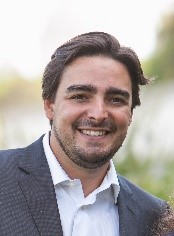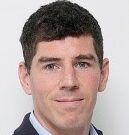Gestão do risco climático – Estratégias e ferramentas para desafios regionais e locais – 1ª Edição

Porquê a gestão dos riscos climáticos? Como questão política, as alterações climáticas estão relacionadas com quatro questões principais e abrangentes:
- O clima está mudando
- Os seres humanos estão causando mudanças climáticas
- As consequências socioecológicas são altamente incertas e controversas, mas incluem o potencial para impactos muito graves
- Existem já diversas e bem definidas opções para a Gestão dos Riscos Climáticos, com pontos fortes e fracos conhecidos.
A Gestão do Risco Climático refere-se às atividades e métodos utilizados por indivíduos, organizações e instituições para facilitar a tomada de decisões resilientes ao clima. A gestão dos riscos relacionados com o clima, especialmente à escala regional e local, é, portanto, um facilitador essencial do desenvolvimento sustentável. A identificação e a gestão dos riscos associados aos perigos relacionados com o clima podem ajudar a proteger as pessoas, a natureza, os meios de subsistência e os bens, promovendo assim sistemas e comunidades socioecológicas mais seguros e a concretização dos objectivos de desenvolvimento.
Não importa o tipo de organização que você trabalha, você será impactado de alguma forma pelos efeitos físicos das mudanças climáticas e/ou pela riqueza de regulamentações e metas que as sociedades serão cada vez mais obrigadas a cumprir.
As abordagens de gestão dos riscos climáticos geralmente enquadram-se em cinco grandes categorias: (a) Mitigação; (b) Adaptação; (c) Resiliência climática; (d) Redução do Risco de Desastres; (e) Geoengenharia. Estas categorias não são mutuamente exclusivas, apresentam compromissos e estão abertas a julgamentos de valor subjetivos. A gestão dos riscos climáticos incluirá quase certamente uma combinação de múltiplas respostas e é altamente dependente da escala.
O objetivo deste curso é explorar para que a gestão dos riscos das alterações climáticas seja importante para o seu trabalho e organização, mas também como fazê-lo. Será solicitado a trazer seus próprios desafios regionais ou locais de Gestão de Riscos Climáticos e Importantes com uma comunidade de outros profissionais de mudanças climáticas. Juntos, vocês explorarão um conjunto de estratégias e ferramentas para ajudá-los a se preparar para um futuro em mudança.
Profissionais regionais e locais em questões de alterações climáticas, específicos para explorar novas ferramentas, quadros e formas de lidar com o risco climático em seus setores e atividades.
Aceitamos inscrições de profissionais que lidam com os desafios de gestão de riscos climáticos de uma ampla gama de organizações. Estes podem incluir, mas não estão limitados a, governo central, administração regional e local, negócios e empresas, serviços públicos, associações, ONG, meios de comunicação social e universidades.
A edição inaugural de 2023 deste curso de outono é organizada paralelamente ao Fórum Europeu de Resiliência Urbana deste ano ( EURESFO 2023 ), que acontece em Cascais, Portugal, de 18 a 20 de outubro. Os participantes da EURESFO são muito bem-vindos a candidatar-se.
O curso é organizado em colaboração estreita com a Missão da UE para a Adaptação às Alterações Climáticas
|
|
Quarta, 11h10 Introdução, visão geral do curso e terminologia | Qui 12.10 Preparando o terreno e avaliando as necessidades | Sex 13.10 Identificando riscos e selecionando opções | Sábado, 14h10
Dia de campo |
Seg 16.10 Implementando, monitorando e avaliando opções | Ter, 17h10 Comunicação e engajamento |
| Receção aos participantes | Receção aos participantes | Receção aos participantes | Receção aos participantes | Receção aos participantes | ||
| Manhã | Boas-vindas, contexto do curso | Palestras | Palestras | Visita de campo | Palestras | Apresentação final do grupo |
| Almoço | Visita de campo | |||||
| Início da tarde | Partilha de desafio | Palestras | Workshop: Compreender e prioritizar riscos | Viagem ao campo | Workshop: Monitorar e avaliar | Sessões paralelas e aquecimento EURESFO |
| Tarde | Partilhar o seu superpoder | Análise de estudo de caso | Workshop: Avaliar e selecionar opções | Preparação da apresentação final do grupo | Preparação da apresentação final do grupo | Reflexões e encerramento |
| Noite | Evento social | Tempo livre | Jantar com palestrante | Tempo livre | Jantar de celebração |
Participação contínua nas atividades do curso e apresentação final de um trabalho de grupo.
Edição inaugural de 2023: 4ª feira, 11 de outubro, a 3ª feira, 17 de outubro .
Das 9h às 17h30, todos os dias.
As noites do dia 1 (quarta-feira, 11 de outubro), dia 3 (sexta-feira, 13 de outubro) e dia 5 (terça-feira, 17 de outubro) incluem jantares de grupo a partir das 19h30.
Uma saída de campo está prevista para sábado, 14 de outubro, se o tempo permitir.
Aplicação: gratuita
Taxa de inscrição (se candidatura aceite – seguro incluído): 5€
Mensalidade: 300€ (inclui aulas, materiais, refeições, visita de estudo)
Condições especiais
- 10% – Empresas não parceiras que inscrevam 3 ou mais colaboradores
- 15% – Parceiros e colaboradores (incluíndo associações e empresas em que CIÊNCIAS participa)
- 25% – Alunos e ALUMNI de CIÊNCIAS
- Isenção integral de propinas – as instituições que tenham celebrado acordos de parceria com o CIÊNCIAS (apenas para esta formação) podem inscrever-se gratuitamente como participantes. A mensalidade integral será aplicada para inscrições adicionais.
O curso decorrerá com um mínimo de 15 participantes inscritos e um máximo de 25.
Coordenação

Formadores
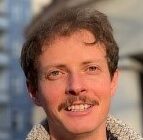

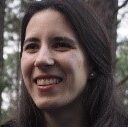
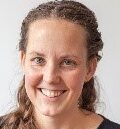

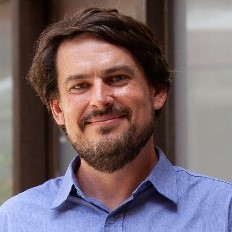
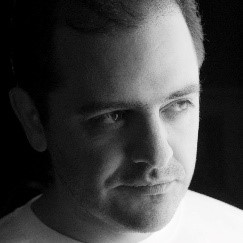
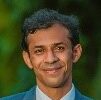
Share:



